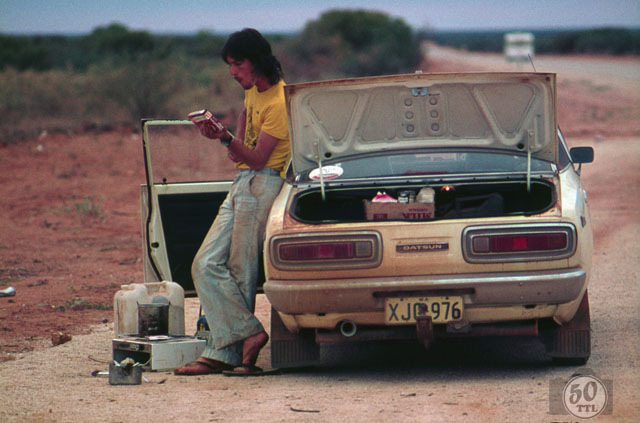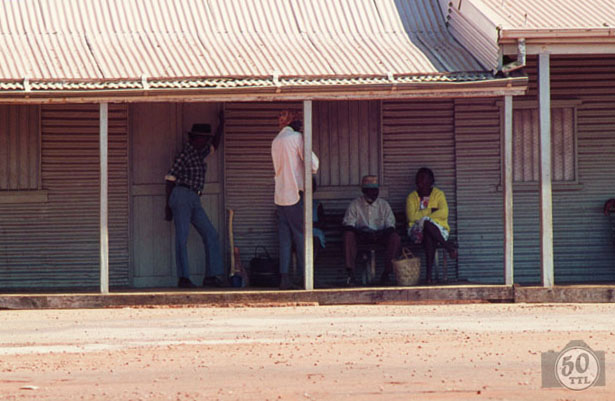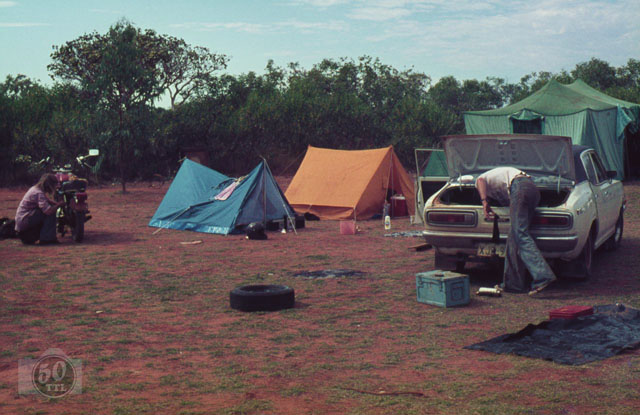
Study, study, study… and drive away. I spent the first half of 1976 immersed in study, but became dissatisfied with the course. It had a few teething problems, which culminated in a sit-in at the uni admin. In the end, I decided to defer and take a mid-course gap year.
D and I drove away from Perth in his Datsun 180B and headed back to the big red north. It was a great road trip that ended in Derby when we got turned around by the police. It seems we kept some bad company at the pub that night and we ended up headed for a party that never happened because the constabulary intervened. “You fellas better head back to Broome,” the officer said. “If I see your car around town tomorrow, I’ll give it a roadworthiness test, and I’ll find something wrong with it.” We left.

So, in the 50TTL photo series, we get a bit of repetition: Car models, a street scene in Broome. This is characteristic of photography. You can revisit the same place or the same theme and take pics over and over again without ever getting the same photo. Your photos might get boring, of course, but they are necessarily unique.

If anyone has been to Broome recently, perhaps they can tell me if the Cable Beach Caravan Park still exists, and if it still looks like this? One of the fellas we met here was riding a Norton motor bike around Australia, with a puppy named Cannabis sitting on the fuel tank. When we met up with him at the Continental Hotel, he drew attention by swaggering into the bar and calling out across the room to us: “Hey guys, can I leave Cannabis in your car?”
When we drove away from Broome in 1976, I had no idea that I wouldn’t return for 31 years. You will have to wait about 30 blogs for the next pic of Broome. But I am glad that I got photos of Broome before the boom.
With the passage of time, photos like the street scene above may become more significant. The fact that I took the photo with Aboriginal people on the veranda starts to raise questions about photography across cultures. (Wait until you see next week’s blog.) Taking photos of another culture can be companionable creativity, respectful documenting, blissful ignorance, patronising or downright exploitative. Sometimes the photographer might have elements of all of these.